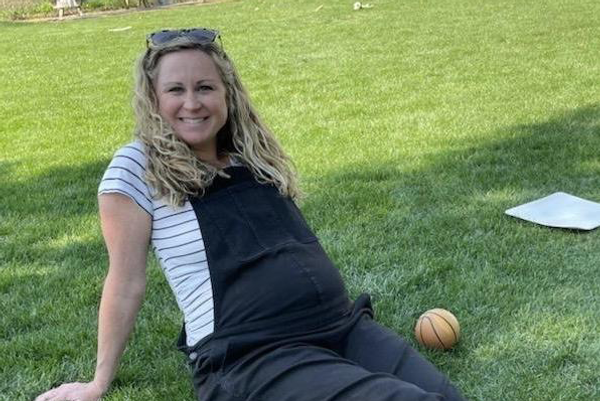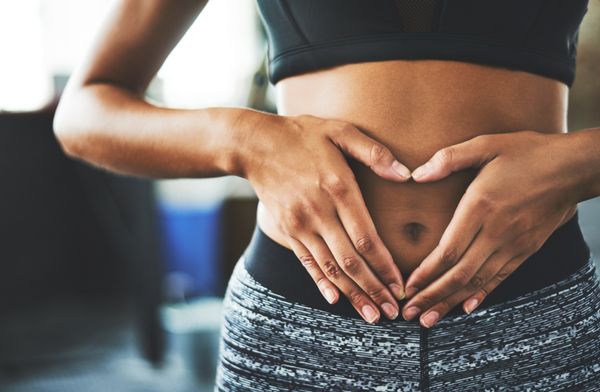You see a baby in a stroller at the mall and your heart aches. You hold your bestie's newborn and you cry. A baby is born on your fave television show and you're balling your eyes out. You have baby brain! But you've been trying to conceive one of your own for several months and haven't seen that "yes" on the pregnancy stick.
To help increase your chances of getting pregnant, try the following tips.
Chart your basal body temperature.
Track your basal body temperature (BBT) to assess if you're ovulating. Your BBT is your lowest body temperature and is measured when you're fully at rest. That temperate reading fluctuates throughout your cycle. The day after you ovulate, your BBT will rise 0.4 to 1.0 degree and will stay elevated until your next period. You should check and chart your BBT using a basal thermometer each morning before you get out of bed, ideally about the same time each day. Track it over a few months to assess when you're ovulating, and then have sex around the time of ovulation.
Assess your cervical mucus.
Track your cervical secretions to assess your fertility. Your cervical mucus changes in quantity and quality throughout your cycle. You have the most when you're about to ovulate and the least right after your period. You're most fertile when your mucus resembles egg whites, looking and feeling stretchy and clear. The more of this mucus you have, the higher your likelihood of getting pregnant. Ovulation is done when the mucus has thickened.
Use an ovulation calendar.
A fertility calculator or calendar can help you figure out the length of your cycle and the day of the month when you're most fertile. Over time, you'll see patterns in your cycle. And you can use that information to assess the best time to try to get pregnant.
Try an ovulation kit.
An over-the-counter ovulation test can assess when you're ovulating. That way you'll get an idea of when you should plan to have sex. Since the kit can't go in and see if you've ovulated, know that these kits aren't 100 percent accurate.
Maintain a healthy weight.
Ensuring that you're not underweight or overweight will keep your reproductive cycle in balance. Check your BMI (body mass index) score; a ranking of 19 to 24 indicates a healthy weight. Anything above that range should be discussed with your health care provider. Read more about fertility-boosting foods.
Watch what you eat.
Unhealthy food intake, whether too much or too little, has been recognized as a contributing factor to infertility because it can make your reproductive cycle irregular. And that causes you to ovulate occasionally or not at all. Switch protein sources, replacing some of the beef, pork or chicken you eat—animal protein—with vegetable protein sources, such as cooked dried beans and nuts. When 5 percent of total calories eaten come from vegetable protein instead of animal, the risk of ovulatory infertility drops by more than 50 percent. Add high-fat dairy because the more low-fat dairy products you eat, the greater your risk of ovulatory infertility. Try replacing one low-fat dairy serving per day with one high-fat serving, such as a glass of whole milk.
Stay hydrated.
Your cervical fluid—which helps the sperm find the target egg—gets sluggish when you don't drink enough water. Consume plenty of water so that your urine is light yellow.
Cut caffeine.
High caffeine intake interferes with conception. Consider eliminating or avoiding caffeinated coffee, tea and soft drinks (decaf is fine). Does the thought of losing that morning pick-me-up make you break into a cold sweat? You can stick to one to two 8-ounce cups a day.
Meet with your ob-gyn.
Your health care provider can speak with you about the overall status of your health and suggest any lifestyle changes you need to make that can help you get pregnant. Since some fertility issues may be hereditary, it's also a good idea to meet with a doctor if you have a family history of infertility.
See the dentist.
Gum disease is linked to underweight and premature babies. And the health of your mouth and teeth can change once you're pregnant. To ensure that your mouth is in tip-top shape, visit your dentist.
Manage stress.
Trying to get pregnant can be stressful. Do your best to manage and reduce tension and anxiety. Try relaxation techniques like meditation, acupuncture or yoga.
Exercise within reason.
It's fine to get in some moderate activity. But engaging in strenuous, vigorous and extreme exercise might impact your menstrual cycle, leading to infertility. So, pass on the marathon when you're trying to get pregnant.
Inspect your medicine cabinet.
Some prescription medications may be unsafe during pregnancy or make it more difficult to get pregnant. Review the medications you're taking with your health care provider.
Ditch the lube.
Some lubricants can make sperm more likely to die before they reach the egg. If you need some lubrication to make you more comfortable during intercourse, try a lubricant that's sperm-friendly or use canola oil.
Stop drinking.
Yes, there's no evidence that drinking an occasional glass of wine factors into your fertility. But consider passing on alcohol when you're trying to conceive to be on the safe side.
Quit smoking.
You and your partner should both ditch this habit for the sake of your health, your fertility and a healthy baby. Smoking makes you prone to ectopic pregnancies (when an embryo implants somewhere other than the uterus, such as in one of the fallopian tubes), lowers the number and quality of sperm and is linked to an increased risk of miscarriage.
Load up on vitamins.
Ask your ob-gyn which over-the-counter prenatal vitamin you need or if you should take a prescription prenatal vitamin. She may also suggest that you take folic acid or a prenatal vitamin with folic acid. Folic acid will help reduce the risk of spina bifida and other neural tube defects in babies. Food sources of folic acid include beans, orange juice, spinach and strawberries.
Have a lot of sex!
Hit the sack two or three times a week; you'll be more likely to get pregnant faster. Some experts say that when you're trying to conceive, you should have sex once a day, every other day, especially when you're most fertile right before and after ovulation.
Beware of what you do after sex.
A few things to avoid after sex include saunas, long runs, hot tubs or other activities that raise your body temperature. You should also skip douching after sex because it puts you at risk for a pelvic infection.
According to the Mayo Clinic, most healthy couples trying to conceive who have frequent unprotected sex become pregnant in a year. If you're not getting pregnant as fast as you want or hope, consider visiting a doctor. If you're older, you may want to get help sooner because fertility decreases with age. The sooner you visit a doctor, the more likely you'll have success with fertility treatments.
- Fertility-Boosting Foods - HealthyWomen ›
- How to Use a Fertility Calculator - HealthyWomen ›
- How to Improve Your Chances of Getting Pregnant - HealthyWomen ›
- 4 Sex Tips to Help You Get Pregnant - HealthyWomen ›







